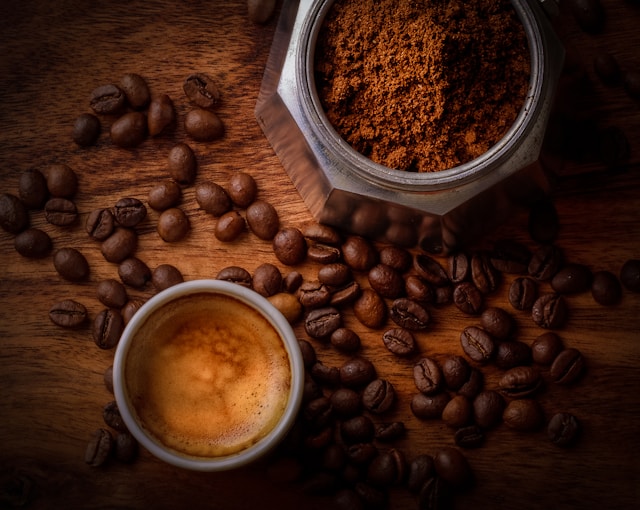From farms to cups, coffee sustainability covers far more than recycle pods. I recently visited the Adams & Russell Coffee Roaster in Birkenhead (near Liverpool) to discuss how they advocate for eco-friendly practices and how home baristas can work together.
What stands out for Adams and Russell in sustainable roasting?
Adams & Russell:
“We source high quality trackable Arabica beans from around the world, roasting them in small batches to maximize flavor and freshness.
The artisan approach means adjusting the roast for each variety, so the beans are not fresh and are optimized. ”
We stock fair trade and organic coffee – why is it important?
Adams & Russell:
“Fairtrade certification guarantees farmers the lowest prices and protects farmers from volatile markets. It also promotes environmental standards, such as maintaining soil and water quality, avoiding chemicals, and conserving biodiversity.”
“We also feature coffees like the Anei Organic Colombian Sinong-Plantation, grown by agroecological producers who are in harmony with the nature and bundle of women’s cooperatives who are proud to build sustainable communities.”
How about packaging? How do Adams and Russell reduce plastic waste?
Adams & Russell:
“We’re heading for fully recyclable or compostable packaging. Customers can also refill containers in the store. Bulk purchases mean less packaging and fresh coffee.”
Bring sustainability home. What is a simple eco-friendly brewing change?
Adams & Russell:
“Starting with the brewing devices – French Press, Aeropress, V60, Chemex – no single use pod required.
We recommend unbleached compostable paper filters or reusable stainless steel mesh. Then, just before brewing, you buy the whole beans and grind them to make the coffee fresher and wasteful. ”
Beyond brewing – what happens to the site and shell used?
Adams & Russell:
“Used coffee grounds are rich in nitrogen, making them perfect for compost and garden mulching. They naturally fight off slugs,” they explain. Furthermore, using coffee chaff results in greater savings when using paper shells from roasting.
Collect chaffs via vortx filtered roaster system, allowing customers to add to compost or use as mulch
This is a simple but powerful example of circular economy thinking. ”
What sustainable coffee tools do you recommend?
Adams & Russell:
“We love Circular & Co Reusable cups made from recycled paper cups in the UK, designed for 10 years of use and fully recyclable at the end of life.
We also stock stainless steel filters, V60s, grinders, and more. Buying high quality tools will continue and reduce repeat replacements. ”
Tackle hidden costs: energy use
Adams & Russell:
“Bring only the things you need to boil, turn off the machine after use and try cold brew. Large batches stored in the fridge will eliminate repeated heating.
Manual brewers need electricity, and hand-grounding beans further reduces their energy needs. ”
What about milk and sweeteners? Are there sustainable swaps?
Adams & Russell:
“For milk, you’ll move it to a glass or recyclable carton that can be returned to a plant-based plant-based plant-based. You can either exchange single-service sugar packets with bulk sugar jars or make your own syrup.
We offer sugar-free sweet bird syrup with simple flavours.
Are there any fun DIY coffee projects you suggest?
Adams & Russell:
“absolutely.
Use the grounds and coconut oil for the body scrub, abandon deodorizing the refrigerator on dry ground, sprinkle the shells and remaining ground around acid-loving plants.
You can also make coffee-scented candles with melted wax and chaff. ”
Finally, Adams and Russell
“Our goal is simple. We close the waste loop, support farmers, and allow people to enjoy coffee with purpose.”
Their model provides a blueprint for coffee lovers who are aiming to reduce their footprint, from direct trade sourcing and recyclable packaging to recycling and reusable tools for chaff.
By applying some of these strategies (bulk purchases, waste reuse, reusable tools, mindful brewin), you can turn your morning cup into a low ritual. As Adams & Russell reminds us: it’s not about perfection, it’s about progress. And with coffee, all small changes lead to big differences.





